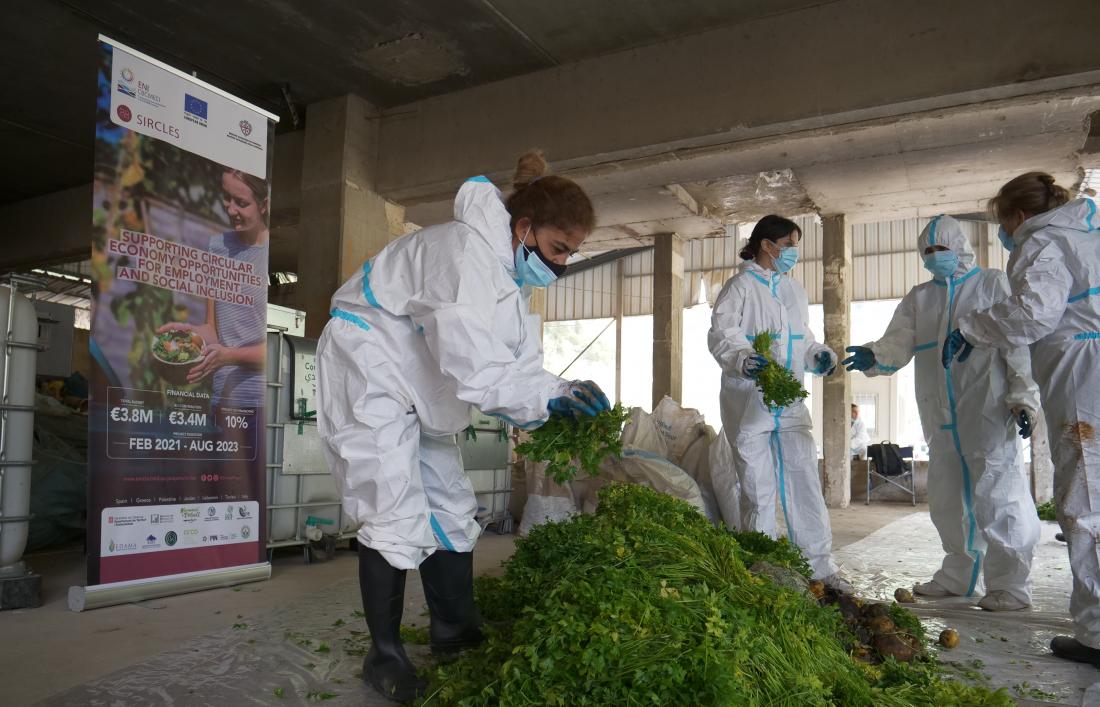SIRCLES in Lebanon: trainees apply what they learnt on biowaste management in Hbaline pilot site

This article forms part of a series of publications under SIRCLES project to support circular economy opportunities for employment and social inclusion in our partner territories in Palestine, Lebanon, Spain, Tunisia, Italy, Greece, and Jordan.
The biowaste management training in Lebanon, implemented by the Rene Moawad Foundation under SIRCLES project, is coming to its end as the trainees finished the theoretical sessions and have moved to the on-field practical sessions. As part of the project, the Rene Moawad Foundation is equipping a composting facility in Hbaline, north of Beirut, where the trainees had the chance to visit and put the knowledge they received into practice.
The sessions started with a recapitulation about how to recognize biowaste, the composting process and the scientific approach to composting by Tommy Waked, biowaste consultant and trainer. After that, the trainees were asked to suit up with a disposable overall, waterproof wellies in addition to gloves and face masks, as their long, hard working day was just about to start.
The facility received a pile of waste that was collected from a produce store in Halat, another village, and a nearby Bakery. The trainees were divided into four groups and assigned their first task: manual segregation between organic waste and non-organic waste. Having finished that, the trainees were then asked to mix their piles of biowaste with wood chips and were taught the difference between Nitrogen rich and Carbon rich sources. Then, three mix ratios were determined on volumetric basis for experimental purposes, the first consisted of double the amount of Carbon to the amount of Nitrogen (2C to 1N), the second was equal amount of Carbon and Nitrogen (1C to 1N), and the last one was double the amount of Nitrogen to Carbon (1C to 2N).
The final step was to put the three mixtures inside three Earth Cube composters and to measure the initial temperature using a thermometer and estimate the moisture based on the hand-squeeze test. The trainees were then instructed on how to manage and monitor the composting systems and four volunteered to perform routine visits to follow up on all the three mixes in collaboration with the trainer.









